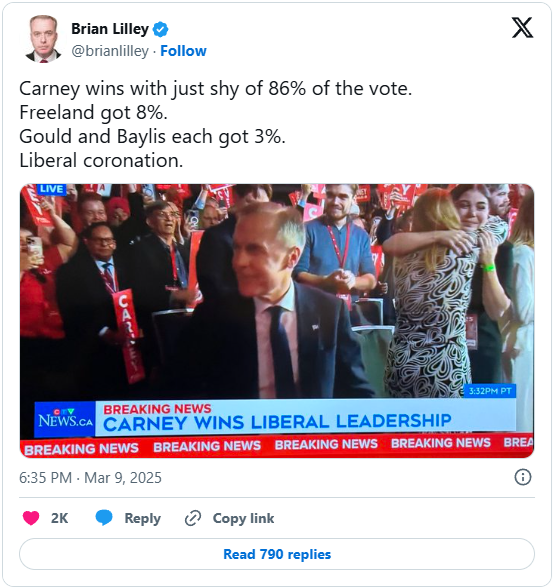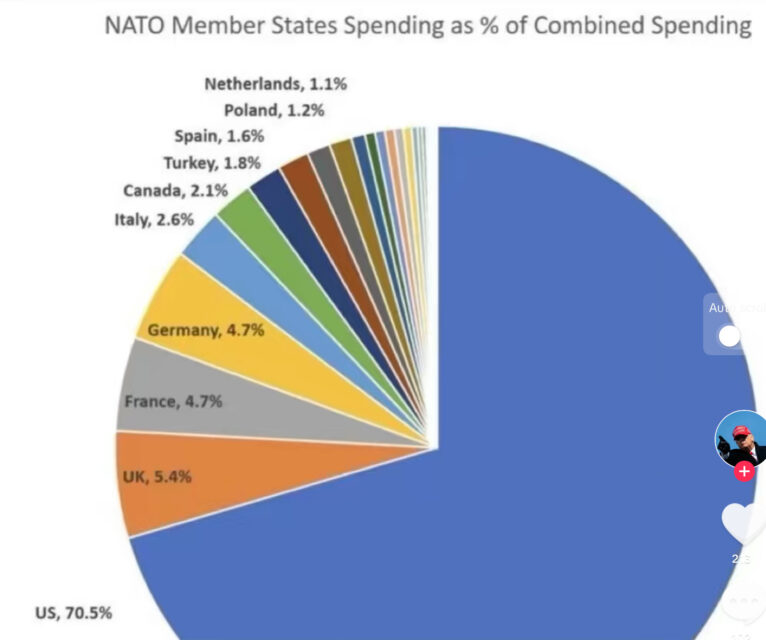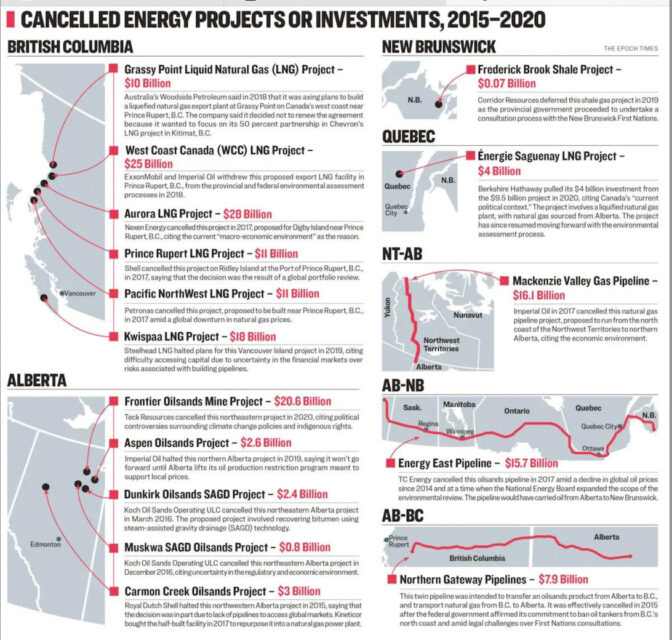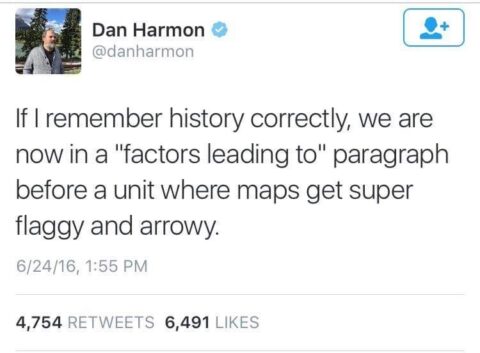Forgotten Weapons
Published 17 Nov 2016During the development of the 1860 Army revolver, Colt did consider mechanical options other than simply scaling up the 1851 Navy pattern. One of these, as evidenced by this Colt prototype, was an enlarged version of the 1855 Pocket, aka “Root”, revolver. That 1855 design used a solid frame and had been the basis for Colt’s revolving rifles and shotguns, and so it would be natural to consider it for use in a .44-caliber Army revolver. How extensive the experimentation was is not known, and I believe this is the only known surviving prototype of a Dragoon-size 1855 pistol. It survives in excellent shape, and is a really neat glimpse at what might have been …
March 12, 2025
Colt Sidehammer “Root” Dragoon Prototype
QotD: A different parable of democracy’s origins
Let me tell you a parable about the origins of democracy. It isn’t actually true, but as with Nietzsche’s genealogies it isn’t supposed to be true, it’s supposed to be revealing. Once upon a time a country was ruled by a king, and inevitably whenever the old king died there was a huge and bloody civil war. Eventually, after the dust settled, one of the armies would be victorious and the other defeated, and the general of the victorious army would become the new king.
Then one day, somebody came up with a daring suggestion: what if instead of actually fighting a civil war, they instead had a pretend civil war. The two contenders for the throne would arm-wrestle, and everybody would treat the winner as if he had actually won the civil war, and thus many lives would be saved. Everybody applauded this idea, unfortunately the first time it was tried the loser of the arm-wrestling contest decided to try his luck anyways, broke the deal, started the civil war, and won. The problem with this approach is that it’s “unstable”, because one’s ability to win an arm-wrestle is only loosely correlated with one’s ability to win a hypothetical civil war. The rule-by-arm-wrestle system can work so long as nobody challenges it, but as soon as somebody does, it’s prone to collapse.
Then somebody else observed that in the last few civil wars, the side with the bigger army always won, and proposed that instead of settling the succession on the battlefield, the two sides simply count up the number of soldiers they would be able to muster, and the side with the largest hypothetical army would win without the war being fought. Note how different this situation is from the previous proposal! This time, the defeated party of the fake, simulated war has good reason not to be a sore loser, because he’s just seen that if the matter really came to blows, he’d probably lose. The solution is “stable” in this sense, all sides are incentivized to accept the outcome. And thus democracy was born.
I like this as a pragmatic argument for a loosely democratic system. It has nothing to do with the moral case for popular sovereignty, or whether it is right and just for the governed to have a say in government, it’s simply about avoiding violent instability by giving everybody a sneak peek at how the putative civil war might turn out, then all agreeing to not have it. But this theory has another selling-point, which is that it also tells us why democracy arose when it did, and why it may now be on the way out. If the principle is that governments will tend towards a form and structure and rule of succession that’s closely tied to their ability to fend off challengers, the that suggests that the most common form of government will depend heavily on what the dominant military technology and strategy of its era happens to be.
For example: in the early Middle Ages, wars were fought by a much smaller number of people, and success in warfare was more dependent on the actions of an elite group of professional soldier-aristocrats. And sure enough, political power was also concentrated in the hands of this much smaller group, because in the event that somebody decided to contest the state, it was the opinion of this group that mattered, not the opinions of everybody.
Sometime in the nineteenth century, the “meta” for total warfare changed dramatically. The combination of mass production, replaceable parts in machinery, and new weaponry that was deadly even in the hands of the untrained masses, all meant that suddenly the pure, arithmetic quantity of men under arms on each side became a much more potent factor in the military calculus. Is it any wonder that a little while later, democracy began to spread like wildfire around the globe? Mass suffrage and mass conscription are inextricably bound with one another. The people have generally ruled in our lifetimes, but only because a little while before (these things always operate on a lag) wars were decided by masses of conscripts with rifles.
There’s no rule that says this connection between military success and popular support has to hold true forever, and in fact it probably won’t. You can imagine this going a few different ways. Perhaps the conflicts of the future will be settled by vast swarms of autonomous killer robots, and the winner will be whoever can produce the best robots the fastest. This world might be conducive to rule by industrial conglomerates and robber-barons, a return to the great age of oligarchy, but with a less aristocratic, more plutocratic spin. If we look to the past, there was a class of societies whose militaries had an extreme ratio of capital intensity to labor intensity — the Mediterranean merchant republics with their fleets and their mercenary armies of condottieri. If future wars are settled by robots, we may find ourselves bowing to a new, doubtless very different, doge.
There’s another possible world, where control of information becomes supreme. You can think of this world as being an intensification of our current one, with an arms race of ever more sophisticated techniques for swaying the masses. Surface democracy spins out of control as an ecosystem of competing psychological operations vie to program or reprogram or deprogram swarms of bewildered and unsuspecting voters, alternatingly using them as betting chips and battering rams. This is a world ruled by the meme lords — brutally efficient teams of spin doctors, influencers, AIs, and the occasional legacy media organization. Like I said, pretty much just an intensified version of our current world.
My guess, however, is that neither of these worlds will come to pass, but instead a third one. The history of military technology is a history of the ancient contest between offensive technologies and defensive technologies, with both sides having held the crown at various points. We may be about to see the balance shift decisively in favor of offensive technologies, with extreme political consequences. Arguably we’ve been in that world ever since the invention of the atom bomb, but WMDs haven’t affected this strategic calculus as much as you might guess, due to all the issues surrounding their use (to be clear, this is a good thing).
Technology marches on, however, and I believe there’s a chance that it’s about to deliver us into a new golden age of assassination.1 Between miniaturized drones with onboard target recognition, bioengineered plagues designed to target exactly one person, and a host of more creative ideas that I don’t even want to write about for fear of summoning them into existence, it may soon become very dangerous to be a public figure with any enemies — that is to say, dangerous to be a public figure at all. What kind of men will rule such a world, where your reign could end the moment somebody discovers it?
Two kinds of men: men with nothing to lose, and men that you will never find. This world of ever-present threat to those with power is a world eerily well adapted to governance by grey, faceless men in grey, faceless buildings. A world of conspiracies hatched in unobtrusive exurban office parks, of directives concealed within stacks of paperwork, where the primary goal of power is to hide itself from view. In other words it’s the world that MITI already inhabits. As in so many things, the future is here, it’s just unevenly distributed.
John Psmith, “REVIEW: MITI and the Japanese Miracle by Chalmers Johnson”, Mr. and Mrs. Psmith’s Bookshelf, 2023-04-03.
1. Japan had a high-profile and socially traumatizing assassination just recently. I find it noteworthy that Abe was killed when he wasn’t Prime Minister anymore, but was perhaps more influential than ever as a deep state power player.
March 11, 2025
“In many ways, Carney is the technocrat’s technocrat. A bona fide citizen of nowhere”
In spiked, Fraser Myers expresses incredulity that Canadians have “chosen” yet another technocratic globalist as our next Prime Minister to succeed Justin Trudeau:

Then-Governor of the Bank of Canada Mark Carney at the 2012 Annual Meeting of the World Economic Forum in Davos, Switzerland.
WEF photo via Wikimedia Commons.
Canadians have a new prime minister. After a leadership election in the ruling Liberal Party, it’s out with the woke globalist, Justin Trudeau, and in with the woke globalist, Mark Carney.
Extraordinarily, in an age where justified populist rage against an out-of-touch establishment is spreading across the globe, Canadians have ended up with a leader who embodies that very establishment. In many ways, Carney is the technocrat’s technocrat. A bona fide citizen of nowhere.
The new Canadian PM’s CV reads like a parody of an archetypal Davos man. He has been governor of the Bank of Canada, governor of the Bank of England and a United Nations special envoy on climate action and finance. Before he entered the public eye, he worked for Goldman Sachs – in London, Tokyo, New York and Toronto. He has degrees from Harvard and Oxford. Yet he has never once held any form of elected political office. He does not even currently hold a seat in Canada’s House of Commons.
Carney is living, breathing proof that expert credentials are no substitute for sound judgement or political acumen. He has embraced just about every naff and dangerous political trend of our times, never deviating from the Davos script.
Most notoriously, as governor of the Bank of England from 2013 to 2020, Carney became the high priest of Project Fear ahead of the 2016 Brexit vote. He warned before the referendum that a Leave vote would spark an instant recession. It didn’t. He claimed Brexit would make investment in British assets so risky that it could ‘test the kindness of strangers’ should the UK take the leap. Needless to say, this was politically motivated hysteria, not a sober assessment of Britain’s economic prospects outside the EU.
More recently, his endorsement of Labour’s Rachel Reeves as chancellor ahead of the UK General Election also smacked of both dubious judgement and needless political interference. Carney said in autumn 2023 that it was ‘beyond time’ her plans were put into action. Yet since Reeves’s plans were actually put into action, in her first budget in October last year, the UK economy has teetered on the brink of recession, unemployment has risen and government borrowing costs have shot up. Call it the Carney kiss of death.
Could even William Shakespeare rescue Hollywood?
Ted Gioia laments the apparent death of creativity in Hollywood over the last few decades:
They need somebody like Bill Shakespeare in Hollywood today.
That’s not as crazy as it sounds. We know very little about the Bard of Avon, but these facts are indisputable:
- He worked successfully in the entertainment business for 30 years.
- He mastered the art of the deal — all six of his surviving signatures come from legal documents.
- He handled money wisely, as entrepreneur, grain merchant, property owner, money lender, etc.
- He still sells tickets today — more than 400 years after his death.
Not even Harvey Weinstein can match that track record.
And — best of all—Shakespeare didn’t let business get in the way of creativity. He knew how to make a buck without compromising his Bard status.
Here’s another fact about Shakespeare: He never used the words “intellectual property” or “content” or “brand franchise”.
I was reminded of that recently when I encountered this headline in The Hollywood Reporter.
I’ve often accused the entertainment industry of abandoning creativity — and turning into boring IP [intellectual property] management companies run by lawyers, bankers, and accountants.
But they don’t even hide it anymore.
There was a day when they pretended to care about artistry — seeking out fresh talent and bold new ideas. But today it’s the exact opposite. They actually want content.
(This is where I concur with Barbara Broccoli, who had creative control over the James Bond films until last week. She forced Amazon execs to buy her out, after she called them “fucking idiots”. This outburst happened in response to the head of Amazon Studios describing the Bond films as content.)
So I read the Bain report and wept. So would Shakespeare — he would rage like King Lear on the heath if he saw a sentence like this:
[Media] companies are essentially themselves converging to compete with the tech media platforms; they’re also acquiring to gain more evergreen IP that can be used across modalities. By owning these cross-sector assets and IP, they create fan communities and multimodal content …
I thought content was bad enough. But we’re now dealing with multimodal content.
That sounds like one of the seven plagues of ancient Egypt — a step above locusts, but definitely worse than frogs and hail. Somebody at the consultancy deserves to be smote down at bonus time.
The Myth and Truth behind Croissants – A Recipe from 1850
Tasting History with Max Miller
Published 29 Oct 2024Crescent-shaped bread rolls, from before the croissant was a flaky pastry
City/Region: France
Time Period: 1853Croissants weren’t always the buttery, flaky pastries that we know and love. While today, that flakiness is what defines a croissant, in the past, it was the crescent shape that was most important.
This recipe from the mid-19th century, a good 50 years before the croissant got its flakes, is a wonderfully soft bread. It doesn’t bear much resemblance to a modern croissant besides the shape, but it is much easier to make. The bread is a little plain, but would be lovely with some butter and jam.
In luxury bakeries, small loaves called croissants are prepared, usually in the semi-circular shape of a roll curved and tapered at the ends. The liquid is used to form the dough with one kilogram of flour consists of one or two eggs beaten and mixed with about five hundred grams of water. Moreover, the choice of flour, the dose of yeast, as well as the working of the dough, require the same care as when it comes to the other luxury breads mentioned.
— Des substances alimentaire et des moyens de les améliorer by Anselme Payen, 1853.
QotD: Herbert Hoover wins the presidency
Finally, it is 1928. Hoover feels like he has accomplished his goal of becoming the sort of knowledgeable political insider who can run for President successfully. Calvin Coolidge decides not to run for a second term (in typical Coolidge style, he hands a piece of paper to a reporter saying “I do not choose to run for President in 1928” and then disappears and refuses to answer further questions). The Democrats nominate Al Smith, an Irish-Italian Catholic with a funny accent; it’s too early for the country to really be ready for this. Historians still debate whether Hoover and/or his campaign deserves blame for being racist or credit for being surprisingly non-racist-under-the-circumstances.
The main issue is Prohibition. Smith, true to his roots, is against. Hoover, true to his own roots (his mother was a temperance activist) is in favor. The country is starting to realize Prohibition isn’t going too well, but they’re not ready to abandon it entirely, and Hoover promises to close loopholes and fix it up. Advantage: Hoover.
The second issue is tariffs. Everyone wants some. Hoover promises that if he wins, he will call a special session of Congress to debate the tariff question. Advantage: Hoover.
The last issue is personality. Republican strategists decide the best way for their candidate to handle his respective strengths and weaknesses is not to campaign at all, or be anywhere near the public, or expose himself to the public in any way. Instead, they are “selling a conception. Hoover was the omnicompetent engineer, humanitarian, and public servant, the ‘most useful American citizen now alive’. He was an almost supernatural figure, whose wisdom encompasses all branches, whose judgment was never at fault, who knew the answers to all questions.” Al Smith is supremely charismatic, but “boasted of never having read a book”. Advantage: unclear, but Hoover’s strategy does seem to work pretty well for him. He racks up most of the media endorsements. Only TIME Magazine dissents, saying that “In a society of temperate, industrious, unspectacular beavers, such a beaver-man would make an ideal King-beaver. But humans are different.”
Apparently not that different. Hoover wins 444 votes to 87, one of the greatest electoral landslides in American history.
Anne McCormick of the New York Times describes the inauguration:
We were in a mood for magic … and the whole country was a vast, expectant gallery, its eyes focused on Washington. We had summoned a great engineer to solve our problems for us; now we sat back comfortable and confidently to watch our problems being solved. The modern technical mind was for the first time at the head of a government. Relieved and gratified, we turned over to that mind all of the complications and difficulties no other had been able to settle. Almost with the air of giving genius its chance, we waited for the performance to begin.
Scott Alexander, “Book Review: Hoover”, Slate Star Codex, 2020-03-17.
March 10, 2025
“I, for one, welcome our new unelected globalist technocratic overlord”
With a resounding 99% 85.9% of the voters whose votes were allowed, Maximum Leader Mark Carney has finally been elected to a position for the first time in his adult life:
With the support of most of Justin Trudeau’s team, Carney has been ushered in to continue on with more of Trudeau’s signature economic policies, the ones Carney has been advising Trudeau on since 2020.
Yes, Carney said that he will scrap the capital gains tax changes that have hurt so many small business owners, but that had to go. He also promised to drop the consumer carbon tax but would also increase the industrial carbon tax, a move that will have the same impact on manufacturing industries like steel as Donald Trump’s tariffs.
Few Canadians will know about the discrepancy in Carney’s plan or any others because there has never been a leader in this country elected to such high office with so little vetting. Carney preferred speeches and rallies over news conferences and interviews with U.S. media outlets over Canadian ones because the interviewer would know little about Canadian politics.
When he wasn’t appearing on The Daily Show or the podcast of Trump’s short-lived spokesman Anthony Scaramucci, Carney preferred to speak to friendly liberal media outlets like CBC. While the media narrative is that Carney has reinvigorated the Liberal party and closed the polling gap with Pierre Poilievre’s Conservatives, neither claim is demonstrably true.
While more than 400,000 people signed up as “registered Liberals” to vote in this nomination process, just over 151,000 actually took the time to vote. This is a chance to pick the next prime minister of our country at a time when we are facing a threat to our sovereignty and a threat to our economic future, yet our next PM was chosen by so few people.
By comparison, the last Conservative leadership race saw more than 400,000 people vote with 295,285 ballots cast for Poilievre alone. Sure, it might have been a longer timeline, but the stakes – becoming leader of the official Opposition with no election in sight – were much smaller.
In the National Post Chris Selley doesn’t seem to be a fan of the new unelected leader of the federal government (assuming that Justin Trudeau will actually step down, of course):
Every speaker of note [at the Liberal leadership hootnanny], from the four leadership candidates to outgoing leader Justin Trudeau to former prime minister Jean Chrétien, who held the room in the palm of his hand for what felt like a day and a half, mentioned the need for Canadians to stand together, united and altogether resolute against the threat of Donald Trump’s tariffs.
At the same time, of course, Liberals were insisting that the Conservatives — who have as much or more support nationwide, and until recently had a lot more — are bent on destroying all that’s good and holy about this country. That isn’t really a unifying message.
“Pierre Poilievre just doesn’t get it,” Carney averred in his victory speech. “He is the type of life-long politician … who worships at the altar of the free market without having made a payroll himself. And now … at a time of immense economic insecurity, he would undermine the Bank of Canada. Poilievre has called for the shutting down of CBC at a time when disinformation and foreign interference are on the march. He insults our mayors and ignores our First Nations.”
“A person who worships at the altar of Donald Trump will kneel before him, not stand up to him,” Carney said of Poilievre, who has been raining invective on Trump just as fast as he can in recent days — and indeed someone whom Trump himself denigrated in recent days as “not a MAGA guy”.
Oh, and Carney said “Pierre Poilievre would let our planet burn” — on the same night he promised to axe the consumer carbon tax as a first order of business.
Other than all that, though, we’re in it together. Okey-dokey.
Dan Knight is even less impressed:

And here’s where it gets even better. The polling — oh, the polling. For months, the Liberals have been sinking. Before Trudeau resigned, they were floundering at 24% support. Then, magically, within days of picking a new leader, they skyrocket to 33%? A 9-point jump in the blink of an eye? Wow, what a coincidence! You mean to tell me that the same Canadians who couldn’t be bothered to sign up for a free membership, the same Canadians who have overwhelmingly turned against this party, suddenly decided they’re on board again — just because the party swapped one out-of-touch elitist for another?
No. That’s not how this works. That’s not how enthusiasm works.
This isn’t some grand Liberal resurgence. This is the Liberal-friendly media manufacturing a comeback narrative because their government subsidies depend on it. The same journalists who screamed for years about the Conservative “far-right” threat are now bending over backwards to convince you that Mark Carney is a fresh outside
And you know what? Maybe if they had actually let Ruby Dhalla into this race, they would’ve stood a chance. Seriously. I had to do a double-take when I looked at her policies — supporting small business, tough on crime, actual immigration regulation — I mean, that’s how you win the center. That’s how you stop a Conservative majority and turn it into a minority government. If they had let her run, we’d be having a very different conversation right now.
But what did the Liberals do? Oh, they disqualified her over — get this — campaign finance irregularities. But guess what? They kept the money. That’s right. The party flagged “violations”, kicked her out, and then conveniently pocketed the cash. If that’s not the most Liberal Party thing I’ve ever heard, I don’t know what is.
Can you feel the Carneymentum? It’s supposed to sweep the land from sea to sea to sea … any minute now.
Chinese Civil War Part 1 – W2W 11 – Q1 1947
TimeGhost History
Published 9 Mar 2025After WWII, China is plunged into chaos as Chiang Kai-shek’s Nationalists and Mao Zedong’s Communists reignite a decades-old conflict. This episode traces the roots of the Chinese Civil War — from the guerrilla strategies honed in Yan’an to the shifting power dynamics after Japanese occupation. Discover how ideological fervor, battle-hardened tactics, and the struggle for legitimacy set China on a path that would redefine its future.
(more…)
Deep State delenda est
Elizabeth Nickson calls for the destruction of the deep state, Cato the Censor-style: salt the earth and leave no stone standing upon another stone:
There has been some argument in my house about Trump’s tariffs on Canada, and indeed the rest of the world. I’m on the American side; why on earth should the Americans pay for everything? Because they do. They pay for Europe’s defence, they allow every single country to tariff American products while allowing their goods in for pennies. When anyone, anywhere is in trouble, who do they call? The Yanks. Where do the pleas of all the desperate people all over the world land? America. Who did the Israeli captives hope for? Trump and the Americans. (Actually just Trump. They didn’t think that the Biden people would lift a finger. Which they didn’t.)
Please explain why these countries below, numbering 550 million people, cannot defend themselves?
Why can’t they defend themselves? They are broke.
The following represents $150 billion in missed opportunity in the last FIVE years. Canada is so broke, it is broke-ass broke; it is a shriveling carbuncle on the American economy. We send 80% of our exports to you because we are TOO DAMNED LAZY to develop our own country.
If we had built those projects, Canada would be rich, the middle class would be crackling along, creativity would have soared and we would actually be proud. No one is proud of Canada except for the people paid to bloviate or who hope to be paid to bloviate, and those too stupid to bloviate. The rest of us are sullen and angry and so frustrated we don’t know what to do with ourselves.
But no. Climate Change. Look, I am sorry to say this, but anyone who “believes” in climate change being somehow catastrophic is stupid, malignant or has not done the required reading. Which means lazy. Which means childlike. There is no there there. Climate alarmism is nonsense, it is bullshit, it is utter crap made up by subsidized kids looking for “significance” and an endless supply of taxpayer dollars. The science is far too new to be reliable, there are thousands of real (not NGO) scientists in opposition to it and the policy implications are so vast we are looking at a new feudalism. Anyone promoting climate change is unserious.
Childhood is where we are. Canada is the only country in the Western Hemisphere which exacts a crippling carbon tax. And this:
The above is a perfect illustration of vanity, of a detachment from reality. And the only way people can detach from reality is that they are subsidized by the Americans. This means the Heartland people, the Flyover people. Those subsidies to the world added to a massive, unsustainable, insane, debt of thirty-seven trillion, created a giant fuzzy rainbow coloured cloud inhabited by perpetual children built by ghastly people like Samantha Powers, Al Gore, Hillary Clinton, and their legion of sick, larcenous, pedophile supporters, the ferociously stupid women on the east coat of America, the idiots at all the Ivies, and the two million federal workers who are about to be reduced by, I wish, 50%.
Rome (2004): HBO’s Untold 5 Season Story
Little Wars TV
Published 6 Sept 2024HBO’s Rome is one of the greatest television shows ever made, but the premium network infamously cancelled Rome after just two seasons. It is a decision HBO executives later admitted was a mistake. In this video essay, we explore why HBO cancelled Rome and what the showrunners envisioned as the full, five-season story arc. Which characters were meant to survive? What historical storylines would have been explored? And what was the show’s final scene supposed to be at the end of five seasons?
We’ll unearth interviews with Bruno Heller and William J MacDonald, hear from actors like Kevin McKidd, and attempt to piece together a vision of Rome‘s full potential if HBO had not cancelled the show prematurely.
(more…)
QotD: The “Basic College Dude” of the 2020s
… though I have written probably 50,000 words on the Basic College Girl over the years, I have spent almost no time on her opposite number, hereby christened the Basic College Dude (BCD). Admittedly some part of this is structural: There just aren’t that many Persyns of Penis in college these days — nationwide, college enrollment is something like 65% female and climbing; I bet there are more than a few small colleges that, while technically coed, are almost exclusively female. Also, I taught mostly freshman-level History classes, and since I was one of the few dinosaurs who didn’t make attendance a part of the class grade, only the congenital rule-followers, i.e. chicks, showed up.
But mostly it’s just because none of them stick in my memory. The #1 characteristic of the Basic College Dude is that even if he’s there, he’s not there. He’s checked out — mentally, emotionally, spiritually (if that even means anything anymore). Unlike the girls, all of whom seem to be in 72 different clubs and organizations (and list them all on their email auto-signatures, such that by junior year, their honorifics are longer than my entire resume), the guys don’t seem to do much of anything. How do they while away their hours? I assume with social media, like everyone, and with video games and blackout drinking …
… the latter of which I have seen, a lot, and if you’ll permit a brief digression, if you really want to know how fucked our society is, go to a student bar on a Friday night. I myself was a bit of a party animal in college, and like everyone I went over the line a few times, but college kid drinking these days is almost Soviet — they’re aiming to get knee-walking, gutter-puking, total-blackout shitfaced, and they set about it as grimly and efficiently as possible. The girls, too, with the added bonus that they’re all on Ambien and Klonopin and every other happy pill you’ve ever heard of, which makes for some interesting, by which I mean terrifying, behavior …
[…]
But mostly it’s because college dudes have had their libidos beaten out of them. […]
Not only does the BCD not know how to do this, as Nikolai says, he apparently doesn’t actually want to. Constant stimulation by blinking screens, shit diets, and a lifetime of indoctrination have reversed the sexual dilithium crystals. Heartiste used to go on about this, and while I’m no biochemist, either, I think his theory is sound: There’s so much environmental estrogen floating around that men develop the emotional equivalent of gynecomastia, while women turn butch. Throw nth wave feminism into the mix, and you’ve got women acting like the crudest, most obnoxious male stereotypes (they call this “being strong and empowered”), while the men mope and sigh to their diaries.
The end result is that the BCD walks around like he’s shellshocked. He does the bare minimum, hoping to just grind it out without any further affronts to his basic human dignity … but so mal-educated is he, that the phrase “basic human dignity” doesn’t even register with him.
Severian, “The Basic College Dude”, Founding Questions, 2021-10-05.
March 9, 2025
Europe’s leaders start talking about rearmament
Yet another side-effect of the Trumpening has been a shift in attitude among European leaders on the issue of self-defence and military spending. eugyppius points out that the flashy new media campaign to drum up support for the new position has “borrowed” its design from an unfortunate donor:
For three years we have had war in Ukraine, masterminded on the NATO side by senile warmonger-in-chief Joe Biden. This war included bizarre moments, like direct attacks on German energy infrastructure, and also escalatory brinksmanship, as when Biden authorised long-range missile strikes within Russian territory, and the Russians responded with a not-so-subtle threat of nuclear retaliation. Throughout all of this madness, the Europeans slept, sparing hardly a single thought for their defence. Now that Donald Trump hopes to end the war in Ukraine, however, Continental political leaders are losing their minds. War: not scary at all. Peace: an existential threat.
The first way our leaders hope to dispel the disturbing spectre of peace, is via Ursula von der Leyen’s “ReArm Europe” initiative, which will permit member states to take on billions in debt to fund their rearmament. In this way, the clueless histrionic Brussels juggernaut hopes (in the words of Polish Prime Minister Donald Tusk) to “join and win the arms race” with Russia, even if (in the words of the Neue Zürcher Zeitung – h/t the incomparable Roger Köppel) we must “avoid for the moment a confrontation with the new Washington”. Becoming a global superpower with a view towards confronting the hated Americans is all about spending and time, you don’t need strategy or a plan or anything like that.
Those of you wondering whether it might be a better idea to rearm first and then set about alienating our powerful geopolitical partners simply lack the Eurotardian vision. These are such serious people, that in the space of a few days they spun up this remarkable logo for their spending programme …
… which obviously portrays the EU member states smearing yellow warpaint on themselves and in no way evokes the most notorious obscene internet image of all time. Nations just do stuff, but the Eurotards cannot even take a shit without bizarre hamfisted branding campaigns.
As I said, these are deeply serious people, and they also speak very seriously, in declarative sentences that don’t mean anything. In a publicity statement, von der Leyen said that these are “extraordinary times” which are a “watershed moment” for Europe and also a “watershed moment for the Ukraine”. Such extraordinary watersheds require “special measures,” such as “peace through strength” and “defence” through “investment”. Top EU diplomat and leading Estonian crazy person Kaja Kallas for her part noted that “We have initiative on the table” and that she’s “looking forward to seeing Europe show unity and resolve”. Perhaps there will also be money in the ReArm Europe programme to outfit Brussels with an arsenal of thesauruses so we do not have to hear the same words all the time.
At Roots & Wings, Frank Furedi says that “Europe Has Just Become A More Dangerous Place” thanks to the shift to “military Keynsianism” where future economic growth is mortgaged to current military spending:
Of course, it is still early days, and wise counsel may well prevail over Europe’s jingoistic shift towards a war economy. The justification for opting for military Keynesianism is the supposed threat posed by Russia to European security and the necessity for defending the integrity of Ukraine. However, it is evident to all that even if all the billions earmarked for the defense of Europe are invested wisely it will have little bearing on developments on the battlefields of Ukraine. Converting Germany’s ailing automobile industry to produce military hardware will take years as will the process of transforming Western Europe’s existing security resources into a credible military force.
Just remember that Germany’s railway infrastructure is currently in too poor a state to transfer tanks and other military hardware across the country. Years of obsessing with Net Zero Green ideology have taken their toll on Germany’s once formidable economy.
It is an open secret that Europe has seriously neglected its defence infrastructure. It is also the case that initiatives led by the EU and other European institutions are implemented at a painfully slow pace. The failure of the EU to offer an effective Europe wide response to the Covid pandemic crisis exposed the sorry state of this institutions capacity to deal with an emergency. The EU is good at regulating but not at getting things done. The EU’s regulatory institutions are more interested in regulating than in implementing a complex plan designed to rearm the continent.
Nor is the problem of transforming European defense into a credible force simply an matter to do with military hardware. European armies – Britain and France included – are poorly prepared for a war. The nations of the EU have become estranged from the kind of patriotic values necessary to support a real military engagement with Russia. Keir Starmer’s “coalition of the willing” raises the question of “willing to do what?”. At a time when neither France nor Britain can secure their borders to prevent mass illegal migration their willingness to be willing will be truly tested.
Macron and his colleagues may well be good at acting the role of would-be Napoleon Bonapartes. But these windbags are not in a position seriously affect the outcome of the war in Ukraine. As matters stand only the United States has the resources and the military-technological capacity to significantly influence the outcome of this war.
While all the tough talk emanating from the Brussels Bubble has a distinct performative dimension it is important to take seriously the dangers of unleashing an explosive dynamic that has the potential of quickly escalating and getting out of control. As we head towards a world of increased protectionism and economic conflict there is a danger that European rearmament could inadvertently lead to an arms race. History shows that such a development inevitably has unpredictable consequences.
What’s really concerning about the decision taken by the European Council is not simply its “spend, spend” strategy or its wager on the economic benefits of the arms industry. What is really worrying is that Europe’s leading military hawks lack clarity about the continent’s future direction of travel. Afflicted by the disease of geopolitical illiteracy the leaders of Europe have failed to address the issue of how they can navigate a world where the three dominant powers – America, China, Russia – have a disproportionately strong influence on geopolitical matters.
Italy’s Italian Fiasco
World War Two
Published 8 Mar 2025Today Sebastian puts Indy and Sparty in the hot seat for questions about the war in China and North Africa. Just what is the deal with the Italian Army anyway? How much fighting did the CCP do against the Japanese? And what’s the most overlooked event of the first year of war?
(more…)
Mark “the human snooze button” Carney
In the National Post, Chris Selley explains the attraction of a Mark Carney-led Liberal Party to mainstream Canadians:

Then-Governor of the Bank of Canada Mark Carney at the 2012 Annual Meeting of the World Economic Forum in Davos, Switzerland.
WEF photo via Wikimedia Commons.
Ironically I suspect what Poilievre is up against is one of the most basic and powerful forces in Canadian politics: conservatism, but in one of its purest forms, namely suspicion of change — especially in a crisis. Recall that Canada saw 10 elections during the pandemic — one federal and nine provincial. The incumbent parties won eight of them, in some cases even as their health-care and long-term care systems collapsed on their heads and their “pandemic preparedness” folders turned out to contain nothing but some old Calvin and Hobbes cartoons.
No question, there are problems here specific to Poilievre and the Conservatives. The Royal Order of Laurentian Elites nearly fainted when Poilievre started saying “Canada is broken”, but people seemed to calm down about it and engage with it once it became clear most Canadians agreed: 70 per cent, according to a Postmedia-Leger poll last year.
Saying “Canada is broken” nowadays is likely to get you branded a traitor by a mob of people who think Beaver Tails, Tim Horton’s, Molson advertisements and a Tragically Hip playlist comprise a national identity. Canada can be broken and Trump can be a lunatic at the same time, but nationalist outbursts have little time for such nuance.
[…]
Change is unavoidable in the forthcoming election, of course. And by rights, Canadians should want it: Like COVID, Trump’s demands on border security and military spending, and his obviously sincere belief in the power of tariffs — as untethered from reality and sense as these demands are — have exposed massive weaknesses on our part that we should want to fix for our own sake. Poilievre should speak more to us about those fixes.
Mark Carney never made any sense to me as a potential saviour for the Liberals. The most obvious recent event they needed to replicate was Kathleen Wynne’s jaw-dropping majority win in 2014 for the Ontario Liberals, after Dalton McGuinty had driven the party into a pond and left it there to drown. Wynne was a proven, veteran campaigner. Carney is … well, certainly not an “outsider”, but this is his first go at politics, and it certainly hasn’t all been smooth sailing.
But Carney seems set to win the party’s leadership race on Sunday, anyway. He’s boring, and he’s a technocrat, and Trudeau is neither. And neither is Poilievre. A boring technocrat might well look like a safe harbour for a lot of Canadians. Poilievre needs to put a more positive spin on the changes we so desperately need.
Sulla: bloodthirsty psycho or saviour of the Republic?
Adrian Goldsworthy. Historian and Novelist
Published 23 Oct 2024Today’s question asked about Lucius Cornelius Sulla, the first man to the march his legions against the city of Rome, starting the first — but far from the last — of Rome’s civil wars. He killed a lot of people, broke a lot of laws and conventions, but as dictator also introduced a very “conservative” programme of reforms. How should we judge Sulla, as a selfish, brutal murderer, or as a reluctant rebel and well-intentioned reformer?












